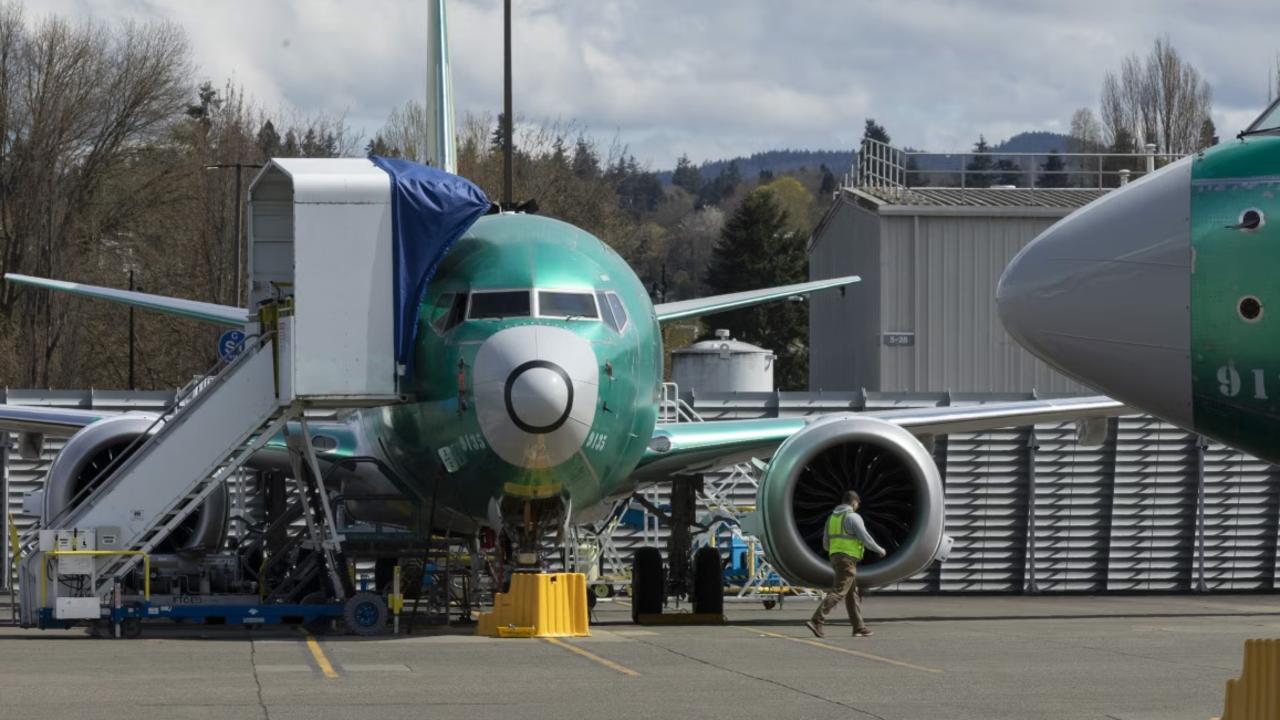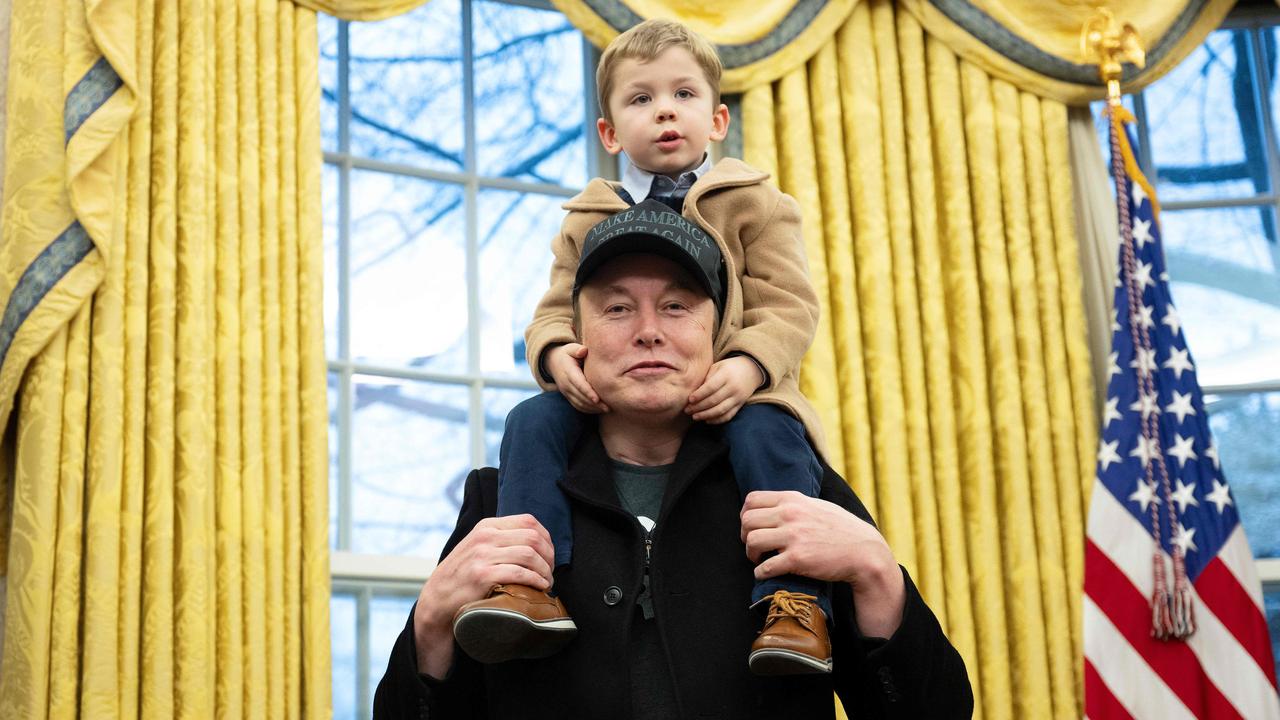Trump invites Erdogan, Turkey readies military offensive
Trump insists the US isn’t abandoning Kurdish fighters as Turkey troops prepared to move across the Syrian border.

Donald Trump has insisted the US wasn’t abandoning Kurdish fighters in northern Syria as Turkey troops prepared to move across the border in a planned military incursion.
In a series of tweets on Tuesday, the president also said he would host Turkey’s President Recep Tayyip Erdogan on November 13. The announcement came after many Republican and Democratic politicians said they disapproved of the president’s Syria decision and floated ideas to punish Turkey if it goes ahead with its operation.
“We may be in the process of leaving Syria, but in no way have we Abandoned the Kurds, who are special people and wonderful fighters,” Mr. Trump tweeted. “Likewise our relationship with Turkey, a NATO and Trading partner, has been very good.”
We may be in the process of leaving Syria, but in no way have we Abandoned the Kurds, who are special people and wonderful fighters. Likewise our relationship with Turkey, a NATO and Trading partner, has been very good. Turkey already has a large Kurdish population and fully....
— Donald J. Trump (@realDonaldTrump) October 8, 2019
....understands that while we only had 50 soldiers remaining in that section of Syria, and they have been removed, any unforced or unnecessary fighting by Turkey will be devastating to their economy and to their very fragile currency. We are helping the Kurds financially/weapons!
— Donald J. Trump (@realDonaldTrump) October 8, 2019
Turkey responded with defiance to US warnings on Tuesday, saying it was determined to proceed with the offensive against Kurdish forces in Syria.
The Turkish response followed two days in which Mr. Trump first appeared to condone the operation after a telephone call with Mr. Erdogan, then threatened to wreck the economy of Turkey if it attacked Washington’s Kurdish allies in the U.S. campaign against Islamic State.
“Turkey will decide its own path and cut the umbilical cord itself,” Turkish Vice President Fuat Oktay said, using a Turkish idiom for self-reliance.
MORE: Explainer: What is behind Trump’s Syria move? | Comment: Trump’s bad deal
Any large-scale Turkish offensive could be contingent on the U.S. easing its control of airspace over northeastern Syria, as any major troop movements would require significant air support.
“Turkey would wait for the U.S. to state formally that the airspace will be open to Turkish planes,” said Sinan Ulgen, director of Istanbul-based think tank Edam. Mr. Erdogan would likely need to weigh in on the issue, he said.
“That might require another phone call with Mr. Trump given the reticence of [the U.S. military] to do anything that would facilitate Turkey’s task,” Mr. Ulgen said.
Pentagon officials said on Monday that they didn’t endorse and wouldn’t support a Turkish operation in Syria.
Inside Syria, Kurdish workers along the border with Turkey were digging tunnels on Tuesday in preparation to defend against the Turkish incursion. Kurdish commanders said they had shifted forces to the border, warning that shift could undermine efforts to prevent a resurgence of Islamic State.
The border terrain is flat, making it difficult for the Kurds to defend against Turkish tanks and heavy weaponry. The only impediment is concrete blast walls topped with razor wire and daubed in places with the words “Down with Erdogan.”
Turkey has long condemned the U.S.’s willingness to work with Kurdish militias it views as terrorists and a threat to Turkey’s own territory. Ankara is intent on driving them back from its border with Syria. In August, Turkey and the U.S. said they had agreed to explore ways to allay Ankara’s security concerns while extending Washington’s partnership with the Kurds.
Prospects of a compromise were up-ended Sunday, however, when the White House issued a late-night statement saying U.S. troops would leave northeastern Syria and allow Turkey to assume control over the area.
The announcement — and the movement of U.S. special-operations forces away from Syria-Turkey border on Monday — drew a burst of condemnation from Congressional leaders who warned Mr. Trump against the reputational and security risks of abandoning a U.S. ally and dropping the fight against Islamic State.
Following the criticism, Mr. Trump tweeted on Monday that he would “totally destroy and obliterate the Economy of Turkey” if the country did anything off limits.
Mr. Trump’s threat drew criticism from across the political spectrum in Turkey. Opposition leader Meral Aksener urged Mr. Erdogan to launch the offensive immediately.
“I urge Mr. Erdogan to give the clearest answer to this impertinence by going to [Syria] and crush this terrorist nest,” said Ms. Aksener, leader of the Good Party, said.
Despite the broad support at home, Mr. Erdogan’s plan is a minefield.
The Syrian Kurdish forces — financed, trained and armed by the U. S. — have vowed to defend the territory they hold, including large border towns such as Kobani, raising fears of sustained urban warfare and substantial civilian casualties.
There is also a risk that the Kurdistan Workers’ Party, or PKK, which operates in Turkey and Ankara says is aligned with Syrian Kurdish forces, will intensify its own insurgency inside Turkey.
Russia, which has moved closer to Turkey in recent months and is also now the largest powerbroker in Syria after throwing its military weight behind President Bashar al-Assad, said it would accommodate any incursion from Turkey to support its security.
Another of the Syrian government’s supporters, Iran, urged Turkey to refrain from going into Syria, saying Ankara should respect Syria’s national sovereignty.



To join the conversation, please log in. Don't have an account? Register
Join the conversation, you are commenting as Logout